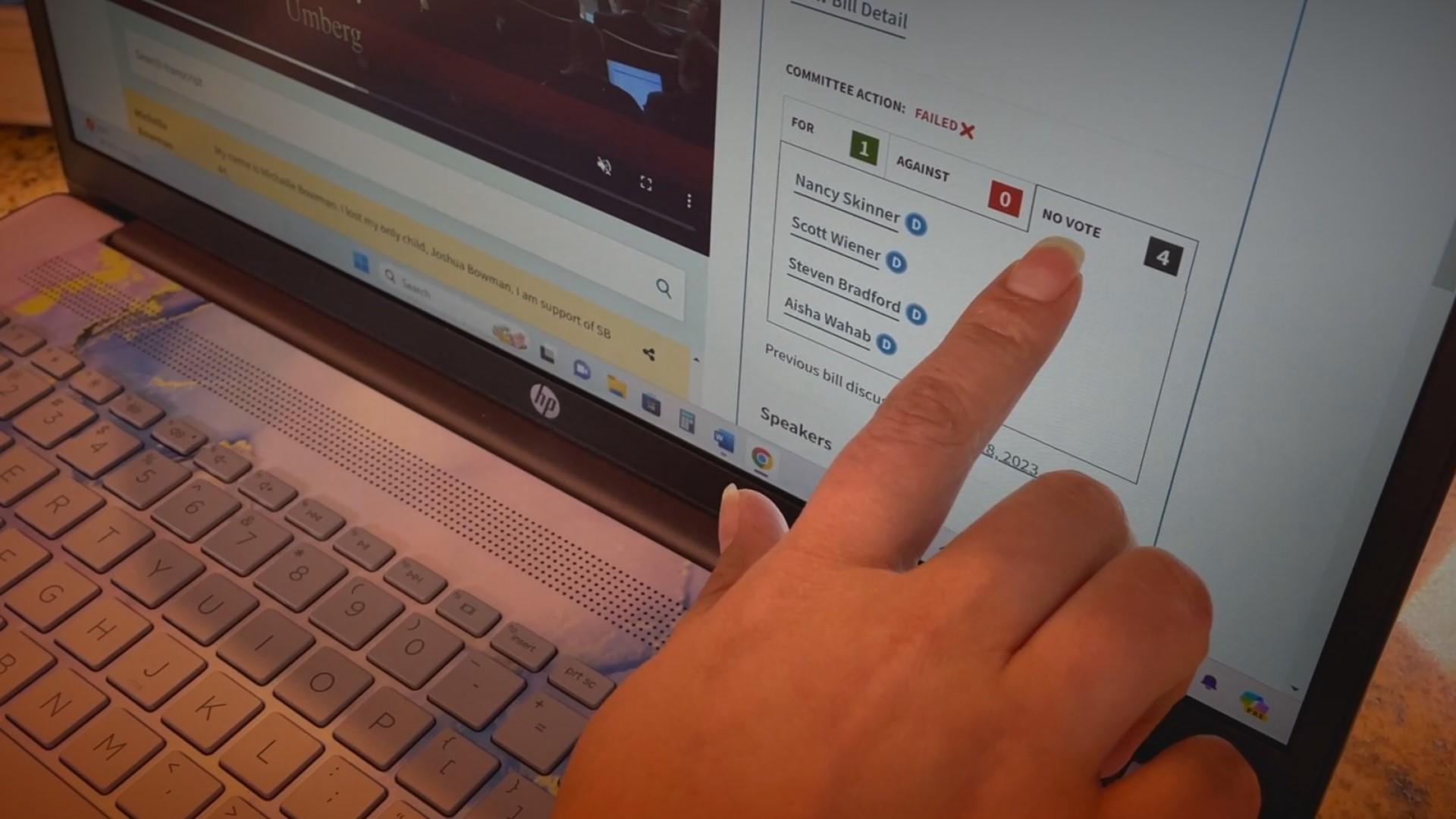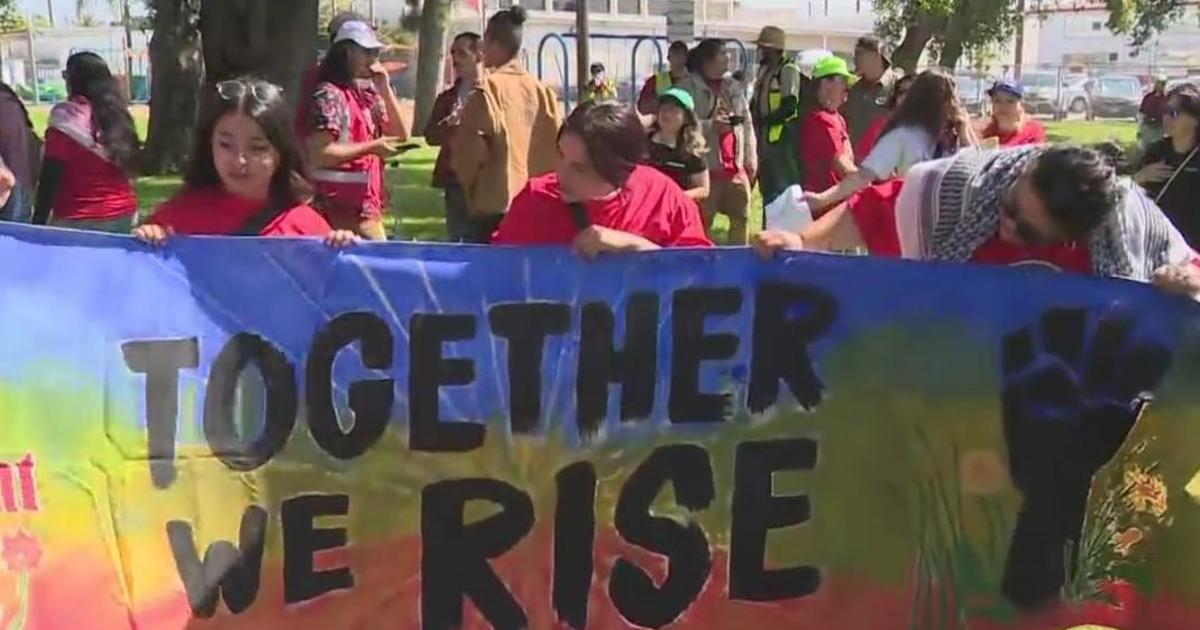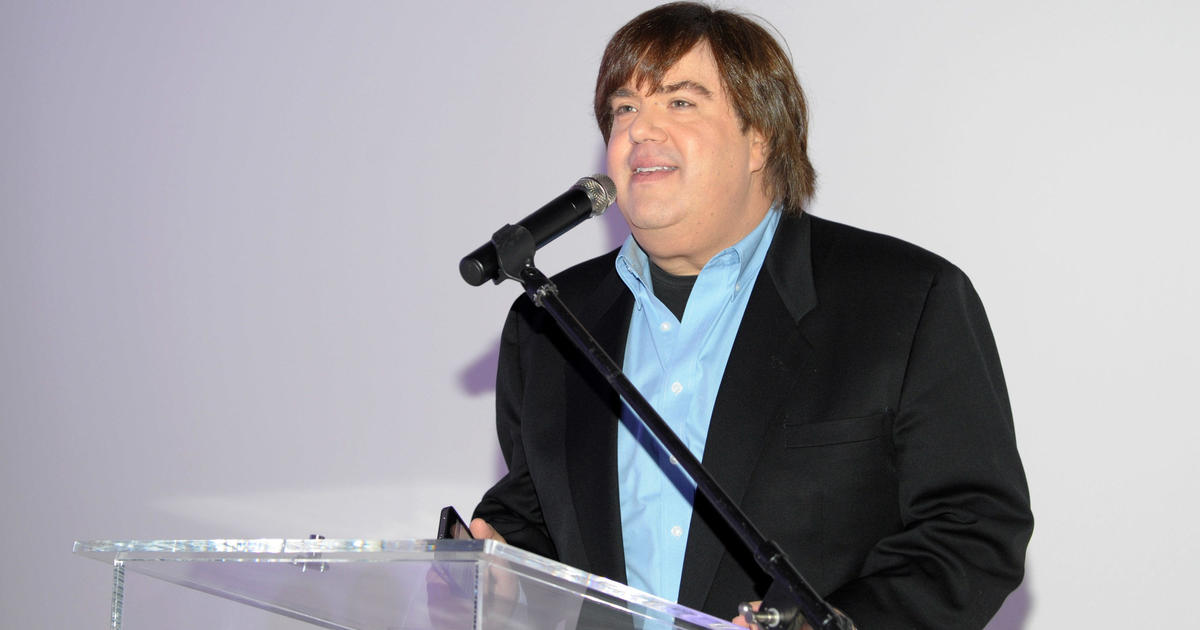Anti-Tax Pledge Directs California Budget Debate
SACRAMENTO (AP) — The governor of Wisconsin has signed it. So have most of the Republicans in California's Legislature.
As state lawmakers grapple with how to address massive budget deficits, anti-tax crusader Grover Norquist is leaving his fingerprints on legislatures across the country. His pledge against taxes is embraced by conservatives and reviled by liberals and some moderates.
In states as varied as Georgia, Arizona and California, Norquist has intervened at critical times to issue a warning or offer his critical stamp of approval to Republican lawmakers.
To many conservatives, signing the anti-tax pledge has become a badge of honor. To others, it's a shield that gives Republican lawmakers an easy out from working toward compromise or making difficult decisions about tax increases or reforms.
Norquist is president of the Washington, D.C.-based group Americans for Tax Reform and has become a flashpoint in the debate over how best to address states' budget deficits, whether he likes it or not.
"I'm not a player in this," he said in an interview with The Associated Press. "The promise they made is to the citizens ... specifically their district. So if a Democrat legislator says that I or Americans for Tax Reform are stopping any tax increase, they're lying."
His pledge is simple, but powerful. Lawmakers who sign it promise to "oppose and vote against any and all efforts to increase taxes."
More than 1,200 Republicans nationwide have signed it. In California, those Republicans say it's a symbol of their commitment to spend the people's money wisely.
But to Democrats and those who opt not to sign, the promise gets in the way of the vigorous debate and compromise that are at the heart of democracy.
This year alone, Norquist's group has weighed in on legislation in Tennessee, Oklahoma, Georgia and Nevada, while praising Michigan's governor for a budget plan that would cut taxes. Norquist called Wisconsin Gov. Scott Walker, who has sought to end most aspects of collective bargaining for public employee unions -- "the next Chris Christie" -- a reference to the New Jersey governor and rising GOP star.
In California, where lawmakers are grappling with a $26.6 billion deficit, Norquist's pledge has become a lightning rod, with Democrats accusing GOP lawmakers of caring more about a pledge from an outside group than their own state.
Gov. Jerry Brown, a Democrat, wants the Legislature to call a special election for June and place a measure on the ballot asking Californians to extend temporary increases enacted two years ago on the income, sales and vehicle taxes. Those increases are scheduled to expire this year. If voters approve, they would remain in effect for another five years, bringing more than $9 billion a year to the state's treasury.
Brown also has called for more than $12 billion in spending cuts to higher education, welfare programs, health services for the poor, in-home care, state parks and a wide array of other programs.
A two-thirds vote is required in California's Legislature to pass tax and fee increases, or to place measures on the ballot. This year, that means two Republicans each in the Assembly and Senate are needed to place Brown's budget plan before voters.
The governor joked during a recent budget hearing that as a former Jesuit who studied to be a priest, he was able to get out of his vows of poverty, chastity and obedience -- so he might be able to arrange absolution for Republicans who want out of their tax pledge. Brown reminded lawmakers that he is not asking for a tax increase directly. Rather, he wants them to put the question to voters so they can decide.
"This doesn't violate any no-tax pledge," he told lawmakers. "It's really a total misrepresentation to say that it is a tax increase to allow the people of California to vote on something so fundamental as their education, public safety and the other matters."
The Assembly and Senate are scheduled to begin debate on Brown's budget plan as early as Wednesday.
In Georgia, Norquist has intervened in two recent tax debates, forcing a tax policy group to convene a special meeting declaring that its plan to revamp the tax code would be revenue-neutral. Norquist then withdrew his opposition. Now, he is excoriating Republican lawmakers for voting in private to block a bill that would allow sales of alcohol on Sundays, a move that would bring more revenue to the state.
Not all Republicans agree with Norquist's approach. Even Christie, whose tax-cutting, union-fighting ways win kudos from Norquist, has not signed the pledge.
"He's taken strong positions to rein in spending and huge cost-drivers in government, specifically unsustainable public employee pension and health benefits," said Christie spokesman, Kevin Roberts. "Actually leading on these issues, as Gov. Christie has been doing, is the most important thing for public officials today."
Another Republican, Nevada Gov. Brian Sandoval said he is against tax increases but declined to sign the pledge in 2009, saying he did not want to limit his options.
"I would rather show what I'm going to do through my actions," he said then.
Former California state Assemblyman Roger Niello said the pledge has become "a policy straitjacket" that prevents rational debate about tax policy, even among conservatives who generally share the same philosophy.
"There are those from outside elected positions that will very aggressively use it in a campaign and say that the lack of somebody's signature on that pledge means that they want to raise taxes, which is a bit of a perversion," said Niello, who did not sign the pledge and lost a Republican primary race last year for a state Senate seat. "They (lawmakers) are motivated by fear."
Two current Republican state senators, Sam Blakeslee, of San Luis Obispo, and Anthony Cannella, of Ceres, have not signed it, along with Assemblyman Bill Berryhill, R-Ceres.
Norquist, who has been involved in national Republican politics since the early 1980s, said any lawmaker in California who signed his pledge and votes for Brown's budget proposal would violate the pledge. He said Brown's call for a special election on the taxes is akin to voting for the taxes themselves.
"If the pledge that people take is to oppose and vote against tax increases, putting a tax increase on the ballot is moving forward a tax increase," he told the AP.
California's state sales tax is the highest in the nation, and trails only Tennessee when average local sales taxes are included, according to the Washington, D.C.-based Tax Foundation.
While Norquist says a vote to put taxes on the ballot would violate the pledge in California, Americans for Tax Reform gave a green light for Republican lawmakers to place a similar measure on the ballot in Arizona in 2009, as long as they approved accompanying budget cuts. Voters subsequently approved the sales tax increase, which was proposed by GOP Gov. Jan Brewer.
Norquist's involvement prompted the Arizona Daily Star to editorialize about why lawmakers there were waiting for "his permission," noting that he does not live or pay taxes in Arizona.
In an editorial, the newspaper said, "Legislators beholden to Norquist's pledge don't deserve their jobs."
(© Copyright 2010 The Associated Press. All Rights Reserved. This material may not be published, broadcast, rewritten or redistributed.)



